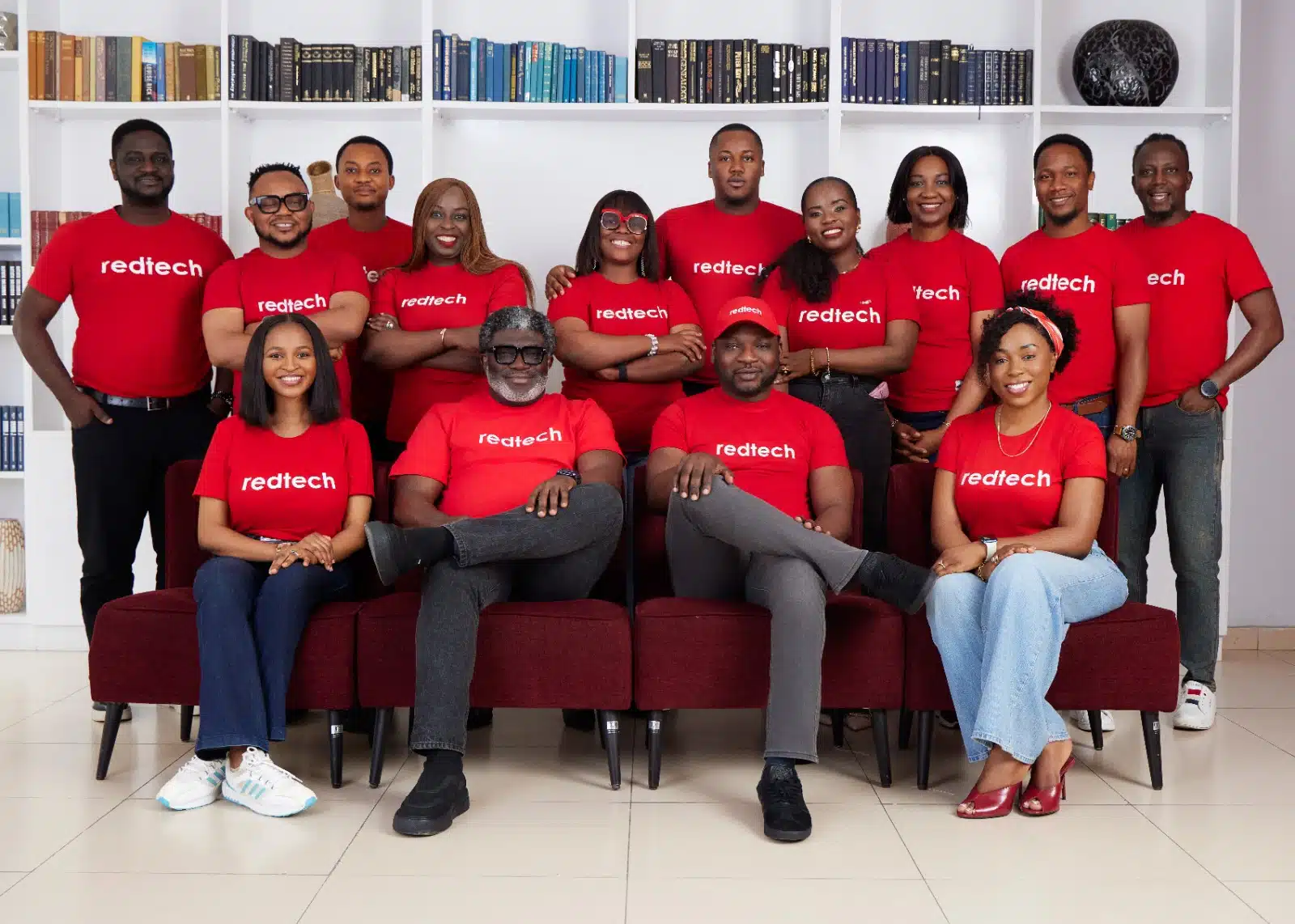Privet,
Victoria from Techpoint here,
Here’s what I’ve got for you today:
- CA orders telcos to adopt licensed PKI by January 2026
- The AI co-pilot for HR teams
- Starlink’s SA licence move gets local empowerment push
CA orders telcos to adopt licensed PKI by January 2026

The Communications Authority of Kenya (CA) just dropped a big new order: telecom operators in the country must start using licensed digital certification services for all systems deemed “critical information infrastructure,” or face penalties. The idea is to beef up cybersecurity and protect highly sensitive digital systems across the ICT sector.
Under the directive, any system classified as CII (Critical Information Infrastructure), under Gazette Notice No. 1043, must rely exclusively on digital certificates, certification services, and Public Key Infrastructure (PKI) from Electronic Certification Service Providers (E-CSPs) that have been licensed and accredited by the CA. The CA is clear: no shortcuts. From January 14, 2026, it will start inspecting operators to make sure they comply.
So why now? The move follows a 2024 determination by Kenya’s National Computer and Cybercrimes Coordination Committee (NC4), which wanted stronger digital trust frameworks across sectors. Kenya already has a National Public Key Infrastructure (NPKI) framework, where the CA acts as regulator and licensing authority for E-CSPs. This directive extends that structure into telecom, making sure operators use trusted certificates.
Of course, implementation won’t be easy. Telecom companies must ensure their systems integrate these PKI services properly, migrate existing certificates, and make sure nothing breaks during the transition. Failing to do so could mean fines, regulatory action, or public censure.
In short, Kenya’s telecom sector is being told to lock down its digital identity and certificate practices. The CA isn’t playing; come January 2026, it will be checking. The question now is: how ready will operators be when the deadline hits?
The AI co-pilot for HR teams

Wale Ayandiran and Franklin Chieze didn’t plan to build HR software. They just wanted to make artificial intelligence more practical for everyday people. But after countless chats with tired HR managers juggling paperwork and Slack messages, they stumbled on a pain point they couldn’t ignore — the chaos of onboarding new employees.

Victoria Fakiya – Senior Writer
Techpoint Digest
Stop struggling to find your tech career path
Discover in-demand tech skills and build a standout portfolio in this FREE 5-day email course
That’s how Onbuddy was born. It’s a smart workplace assistant designed to take the stress out of HR’s most repetitive tasks. Think of it as an AI co-pilot that quietly lives inside tools like Slack and Microsoft Teams, helping teams onboard new hires, automate daily check-ins, and keep things running smoothly without endless follow-ups.
“We’re not trying to replace existing HR tools,” says Chieze. “We just want to integrate with them and give companies an assistant that knows how to interact with all those systems.” In other words, Onbuddy works behind the scenes to keep everyone on track while freeing up time for the work that actually matters.
Before this, the duo had built Proteus AI, a flexible platform for companies to create custom AI tools. But that product attracted non-technical users who couldn’t quite navigate it. So, they pivoted, turning lessons from Proteus into something far more accessible and human-friendly. That shift led them straight into the daily grind of HR teams, where automation isn’t just helpful — it’s survival.
Now, Onbuddy is quietly redefining how companies onboard and support their employees. Want to know what gives it an edge? Read Sarah’s latest for Techpoint Africa.
Starlink’s SA licence move gets local empowerment push

Starlink’s push into South Africa has been simmering for months, but it’s still not boiling over just yet. The latest twist? The company behind Starlink has added a licensed Broad-Based Black Economic Empowerment (B-BBEE) entity to its plan to win an operating licence in the country, underlining how tricky the regulatory terrain has become.
Ryan Goodnight, Starlink’s Market Access director, told members of the Internet Service Providers Association (ISPA) that once South Africa’s regulator ICASA aligns its rules with existing B-BBEE laws, Starlink will set up this new B-BBEE company and formally apply for a local licence. Meanwhile, Starlink is promising big investments: at least R500 million to supply 5,000 schools with free high-speed internet (reaching about 2.4 million learners), and nearly R2 billion to build local infrastructure and partner with local ISPs.
Goodnight emphasised that Starlink wants to operate like a local ISP: paying taxes, following regulations, and integrating with the same systems as other players. He also reiterated the company’s resistance to ceding 30% equity to black shareholders, a long-standing barrier under ICASA’s rules. Instead, Starlink is pushing for “equity equivalent investment programmes” (EEIPs), which effectively let foreign firms meet transformation goals through investments rather than share transfer.
But ICASA and government officials haven’t handed Starlink an easy pass. The regulator has warned residents against using unauthorised Starlink services, has seized equipment from resellers, and is investigating whether the company was already operating illegally. Communications Minister Solly Malatsi has also pushed for policy directions to allow EEIPs in place of forced equity stakes, a signal that the rules might shift, but not without fierce debate.
As it stands, Starlink is walking a tightrope: it’s trying to make its case for entry while navigating South Africa’s transformation laws, regulatory uncertainty, and fierce resistance from incumbents. The question now is whether ICASA and policy changes will bend enough to let Starlink land or whether those barriers will stay firm.
In case you missed it
- Nigeria’s lower house eyes tighter oversight of POS and crypto, cites rising fraud and cybercrime
What I’m watching
- Marriage Explained in 8 Minutes
- This tool will help improve your critical thinking – Erick Wilberding
Opportunities
- Join Africa’s top female founders, investors & innovators at AWFS 2025. Register here.
- Airtel is hiring Enterprise Key Account Manager. Apply here.
- Financial Times is recruiting a West African Correspondent. Apply here.
- Moove is hiring a Marketing Manager. Apply here.
- Standard Bank is looking for a Data Engineer. Apply here.
- Food Court is looking for a Marketing Coordinator. Apply here.
- FairMoney is recruiting Head of Business Banking Product. Apply here.
- Max.ng is looking for a Platform Support Intern. Apply here.
- Businessfront, the parent company of Techpoint Africa, is hiring a Sales Associate. Apply here.
- Businessfront, the parent company of Techpoint Africa, is looking for a Managing Editor (FMCG). Apply here.
- Flutterwave is hiring for several roles. Apply here.
- Paystack is recruiting a performance marketing specialist in Nigeria. Apply here.
- Paga is recruiting for several positions. Apply here.
- Moniepoint is hiring for several positions. Apply here.
- Are you building a startup can feel isolating, but with Equity Merchants CommunityConnect, you can network with fellow founders, experts, and investors, gaining valuable insights and exclusive resources to help you grow your business. Click here to join.
- Help us make Techpoint better for you! Your feedback shapes what comes next (your responses may potentially save my job. A bit dramatic, but still). It will only take 30 seconds to tell us what works and what doesn’t. Fill it here.
- To pitch your startup or product to a live audience, check out this link.
- Have any fresh products you’d like us to start selling? Check out this link here.
- Follow Techpoint Africa’s WhatsApp channel to stay on top of the latest trends and news in the African tech space here.
Have a superb Thursday!
Victoria Fakiya for Techpoint Africa









